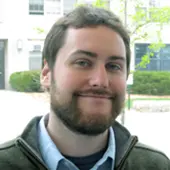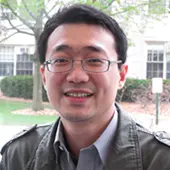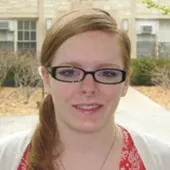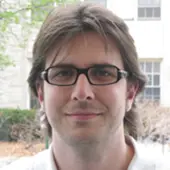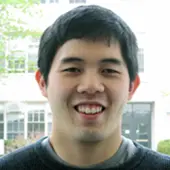2011-2012 Cluster Fellows
Chris Bentley
Department/Program: Journalism
Faculty Advisors: Abigail Foerstner, Associate Professor, Journalism
Status of Studies: Completed Program
What is your area of focus at Northwestern?
Health & Science Reporting, multimedia storytelling
Brief personal history:
I’ve spent most of my life until now in upstate New York. I was born and raised in the Albany, NY area and received a B.S. in Natural Resources from Cornell University in May 2010. As an undergraduate I became involved with the student-run newspaper as editor of the science section and a general assignment photographer. My interests include environmental conservation, international agriculture, renewable energy and climate change — topics I tend to focus on as a science reporter at Medill. I’ve also taken an interest in documentary filmmaking. Before coming to Medill, I was a research assistant in the Department of Earth and Space Sciences at the University of California, Los Angeles. In addition to reading, writing and photography, I enjoy playing electric bass, guitar and ukulele and have played in rock/pop/fusion/surf/ska bands.
Why were you interested in becoming a Cluster Fellow?
My professional and academic career has always been somewhat of a balancing act between journalism/communication, and environmental science. I’m excited to pursue both as a Cluster Fellow alongside science students, from whom I hope to learn.
Updates:
Chris has honed his audio and multimedia storytelling skills working as a reporter for Curious City, a newsgathering experiment from local NPR affiliate WBEZ. Among other stories, he has tracked what really happens to Chicago's recycling, unearthed how engineers built a forest of skyscrapers on soil so soggy they compared it to jelly cake, and how a city program designed to save firefighters lives is having unintended consequences. He continues to freelance, regularly contributing to publications such as The Chicago Tribune, CityLab, Chicago Magazine, and Architect. Chris is a Boston-based freelance journalist and a climate fellow at The GroundTruth Project. He reported from the 2015 United Nations climate change negotiations, contributing to WGBH News and PRI's The World. He also helps produce the NPR newsmagazine Here & Now. Chris is now a full-time Associate Producer at the NPR newsmagazine Here & Now. In addition to his work at Here & Now, Chris has reported on climate change and the environment for public media outlets including PRI, WGBH and RIPR.
Zhenyu Hou
Department/Program: Electrical Engineering and Computer Science
Faculty Advisor: Seng-Tiong Ho,
Professor of Electrical and Computer EngineeringStatus of Studies: Completed
What is your area of focus at Northwestern?
At Northwestern my research focuses on photonics and integrated circuits. My research has applications for energy and sustainability in two technology areas that will contribute to significant savings in industrial energy, which accounts for 40% of the energy consumption worldwide. One area is to lower the power consumption of the rapidly growing information industries, which is a main drain of power worldwide (over 5% of world power consumption). The second area of my research is efficient high-power lasers that can be used in manufacturing industries that currently consume around 30% of the energy and produce 20% of pollutants globally. My research involves a new idea of combining optical waveguide array and curved reflectors to construct efficient high-power diode lasers with efficiencies over 50%.
Brief personal history:
I was born and raised in a beautiful small town in south China. It is also the hometown of several famous Chinese artists. I attended Peking University for an undergraduate education in physics and economics. Afterward, I decided to pursue a PhD in Electrical Engineering at Northwestern and focus on research in Nano-photonics area. Since coming to Northwestern, I’ve become more and more interested in problems that analyze the relationship between humans and the environment. I hope to contribute to solving such problems.
Why were you interested in becoming a Cluster Fellow?
As a Cluster Fellow, I hope to broaden my knowledge of energy and sustainability and also to learn from experts across the campus. The Fellowship is a great opportunity to learn and become more capable of solving different problems.
The highlights of this year’s experience were:
During my fellowship, I had learned a lot from the Cluster Fellowship experience. Among the many activities in which I had been involved, the experience during ISEN 430 was especially memorable. In the course, I teamed up with six other Northwestern students of engineering, law and management backgrounds and founded a start-up company, SiNode LLC. We competed in the Clean Energy Challenge in the Midwest and ended up top 3. We kept the company running after the conclusion of the course and are looking for further opportunities.
This experience has enriched my time here at Northwestern by:
The Cluster Fellowship experience had not only exposed me to extensive topics on climate change and the sustainable energy but also involved me in the experience of promoting awareness of such topics and putting efforts into practice. The whole experience helped me think independently based on facts and make my own judgment on various economics, technological and politics issues.
New things I learned about others or myself this year:
Since this recent year I have been focusing on my thesis writing and final project, as well as graduating and starting to work on my new job, I was not involved in activities at the Institute very much. However, the experience at the Institute remains my main inspiration no matter in my research or work. For example, my final project and thesis is extension of my work at the Institute. At work, we are required to improve the power consumption of high performance super computer clusters.
My future plans include:
In the future, I plan to creatively incorporate innovative technologies in different aspects of industry and daily life. In my new job, I am exposed to how industry is dealing with energy and sustainability issues. This broadens my view and provides me an even bigger and concrete picture of what is going in the real world when it comes to energy and sustainability. I hope to learn more and also contribute more in this aspect.
Marianne Lalonde
Department/Program: Chemistry
Faculty Advisor: Joseph T. Hupp,
Charles E. and Emma H. Morrison Professor of ChemistryStatus of Studies: Fifth Year
What is your area of focus at Northwestern?
I am studying the synthesis and applications of functionalized Metal Organic Frameworks (MOFs). MOFs are porous nanostructures composed of polytopic organic struts linked to metal clusters. I am exploring MOFs for N-heterocyclic carbene catalysis, heavy metal remediation, CO2 fixation and hydrogen storage.
Brief personal history:
I grew up in rural Maryland outside of Washington, D.C. and attended the Global Ecology Studies Program – one of the only environmental themed magnet public high schools in the nation. I graduated cum laude with a B.S. in Chemistry from Case Western Reserve University in Cleveland, OH in January of 2009. I minored in biology and French, and spent a semester abroad in Nice, France. While at Case, under the supervision of Prof. Michael Zagorski, I studied the ability of the A peptide (the major component of amyloid plaques in the brains of patients afflicted with Alzheimer’s disease) to form soluble oligomers. I also spent a summer interning at the Lubrizol Corporation in Wickliffe, OH doing analytical testing on engine oil additives. In my extracurricular life, I was a member of the Case varsity swim team, the Alpha Chi Sigma professional chemistry fraternity and Kappa Alpha Theta sorority. In my spare time today, I enjoy masters’ swimming and home-brewing.
Why were you interested in becoming a Cluster Fellow?
After graduate school, I intend to work towards a clean, renewable energy solution, either as an industrial chemist, or in government research labs. I am also interested in exploring environmental policy work, either with the Department of Energy, or the Environmental Protection Agency. The Cluster Fellowship will allow me to discuss environmental themed issues with non-chemists, a crucial skill to later success in policy or in marketing research ideas in renewable energy.
My future plans include:
The Cluster Fellowship served as a catalyst for much of my future success in graduate school. During my NUVention Energy class, (a requirement for fellows), my team “TiON Tech”, a water purification platform, went on to semifinals of two business competitions: the Kellogg Innovation Network and NUVentures challenges. This gave me a newly discovered interest in the business of science, and I am now completing Kellogg’s Management Certificate for Scientists and Engineers program. Research wise, I have published six papers in peer-reviewed journals (three first authored) since the Cluster Fellowship, and won a total of $2,500 in travel grants allowing me to present my research at conferences in Edinburgh, Scotland, and New Orleans, Louisiana. Currently, I am exploring career options in management consulting, and have attended selective consulting workshops for PhD candidates wishing to make a career change (McKinsey Insight and Bridge to Boston Consulting Group.) I am planning to defend my thesis in Spring 2014.
Xaver Neumeyer
Department/Program: Mechanical Engineering
Faculty Advisor: Ann McKenna
Status of Studies: Fifth Year
What is your area of focus at Northwestern?
My research focuses on the issue of team design and innovation from an educational standpoint. For example, I am interested in the experience of team conflict and how that helps or inhibits students’ overall class performance. While contributing to a group that juggles multiple projects, I am also developing teaching material to help students learn to integrate contextual aspects in design considerations.
Brief personal history:
I am currently working on embedding global, societal, environmental and economic aspects in engineering design education. In doing so, I realized that I need a more thorough background in energy and sustainability issues; thus, I wanted to become a Cluster Fellow.
Why were you interested in becoming a Cluster Fellow?
My professional and academic career has always been somewhat of a balancing act between journalism/communication, and environmental science. I’m excited to pursue both as a Cluster Fellow alongside science students, from whom I hope to learn.
My future plans include:
Staying in the education field and developing new teaching materials, classes or other instructional formats from my research insights.
Jeff Yuen
Department/Program: Environmental Engineering
Faculty Advisor: Jean-François Gaillard, Professor of Civil and Environmental Engineering and (by courtesy) Earth and Planetary SciencesStatus of Studies: Completed PhD
What is your area of focus at Northwestern?
I am studying mercury contamination in aquatic environments. I mainly look at how different ligands (both anthropogenic and natural) affect the bioavailability of mercury.
Brief personal history:
I grew up in Wheaton, IL (only a stone’s throw from Evanston) and went to the University of Illinois for college. I got a B.S. in chemical engineering in 2009 and have been at Northwestern studying environmental engineering ever since. I have an older brother who is a post-doc here at Northwestern and an older sister who works at the Mayo Clinic.
Why were you interested in becoming a Cluster Fellow?
I have always been interested in renewable energy and sustainability. The Cluster Fellowship seemed like a great way to expand my knowledge base in these areas.
My future plans include:
Finishing my degree ASAP and finding an employer who will pay me to do something I’d do for free.
